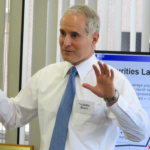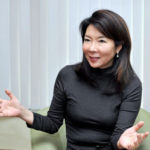
I was recently asked by the Japan Society of Greater Cincinnati to give the keynote speech at their conference event on the theme of “Why Good People Do Bad Things”. I decided to liven things up a bit by attempting to answer the self-posed question: “how might we design corporations if we were inventing them today [not in 1600 -1900]… in an age of huge capital pools, global warming, and an increasing number of other large externalized risks and informational (and other) asymmetries?”
See what you think of my “concept for discussion” on pages 16-19, and my reasons for throwing it out for consideration on the earlier pages. I realize some people will think this concept is a strange and unnecessary, as if the basic legal structure of the corporation is immutable, or hoping ESG integration by itself will solve most of the problems it is concerned with. However, I suspect that in the next few decades corporate law will be evolving much more so as to address the issues and concerns that I raise… even if it addresses them in a different manner. I do not believe that the present legal form of “the corporation” itself is sustainable. Over the past 100 years, too many agency problems, market distortions, asymmetries, and externalities have emerged.




